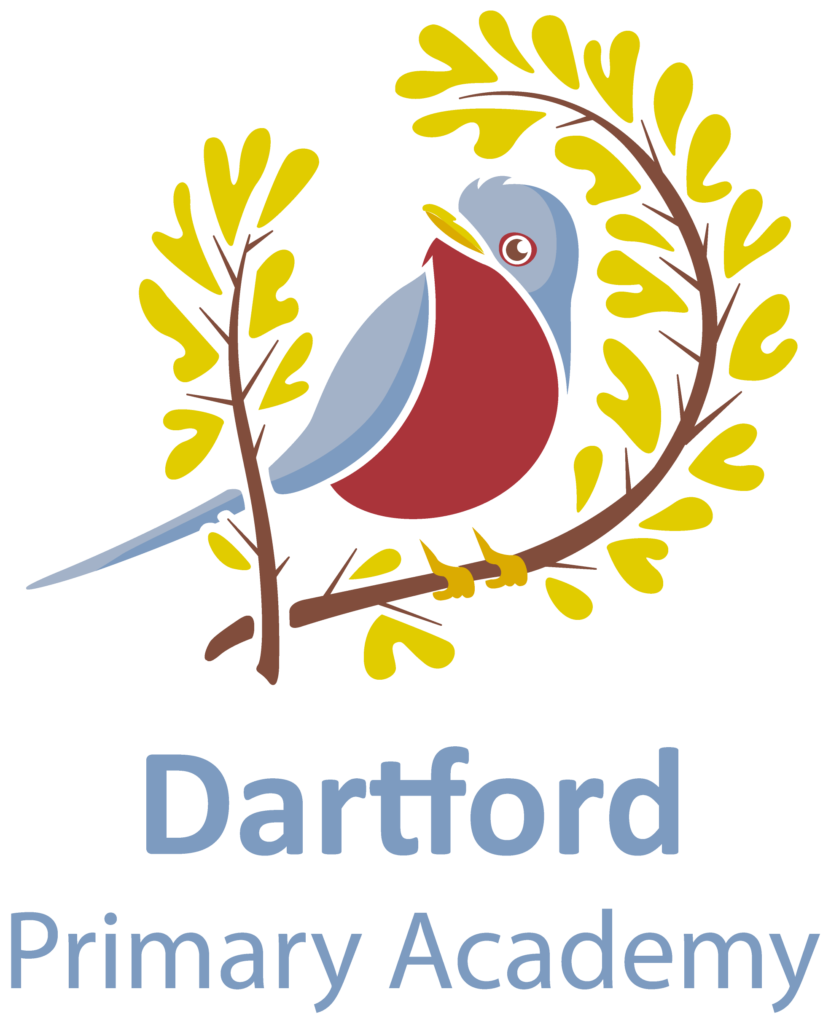At Dartford Primary Academy, we want children to enjoy and express themselves through music in order to develop an appreciation of what this can do for their own well-being and to be ambitious for careers in the music industry. The children will gain a firm understanding of what music is through listening, singing, playing, evaluating, analysing, and composing across a wide variety of historical periods, styles, cultures, traditions and musical genres. We plan to give pupils, regardless of need or background, the knowledge and skills required from the National Curriculum through the development of their curiosity for the subject, as well as an understanding and acceptance of the validity and importance of all types of music. They will develop an unbiased respect for the role that music may wish to be expressed in any person’s life. By developing their cultural understanding, we aim to ensure that they are exposed to music from diverse backgrounds, some of which will already be familiar to them and others which will be completely new. This sequence of knowledge and skills will enable the children to close any gaps they may have as well as achieve clearly defined endpoints. We are committed to ensuring children understand the value and importance of music in the wider community and are able to use their musical skills, knowledge and experiences to involve themselves in music, in a variety of different contexts.
The approaches of the International Baccalaureate Primary Years Programme enable the implementation of a sequenced music curriculum that ensures students develop knowledge and skills to sing, listen, play, perform and evaluate. This is embedded in the classroom activities as well as weekly singing assemblies, various concerts, performances and the learning of instruments with an outside specialist which enable all children to access the inclusive music curriculum. The elements of music are taught progressively in the classroom so that children are given appropriate opportunities to use some of the language of music to dissect it and understand how it is made, played, appreciated and analysed. In the classroom, students learn how to play an instrument from all four main instrument groups of wind, strings, percussion and keyboards. In doing so, they understand the different principles of each method of creating notes, as well as how to read basic music notation. The children will learn how to compose focussing on different dimensions of music which in turn feeds their understanding when listening, playing, or analysing music. Composing or performing using body percussion and vocal sounds is also part of the curriculum which develops the understanding of musical elements without the added complexity of an instrument.
We encourage staff to teach a weekly music lesson as well as formatively assess all the children’s engagement and participation. This helps to ensure sufficient time is allocated to music and that musical subject matter can be revisited frequently. We believe that, by crafting our curriculum this way, we improve the potential for our children to retain what they have been taught, to alter their long-term memory and thus improve the rates of progress they make.
Children have access to a varied programme, which allows students to discover areas of strength, as well as areas they might like to improve upon. The integral nature of music and the learner creates an enormously rich palette from which a student may access fundamental abilities such as: achievement, self-confidence, interaction with and awareness of others, as well as self-reflection. Music at Dartford Primary Academy will also develop an understanding of culture and history, both in relation to students’ individuality, as well as ethnicities from across the world. Children are able to enjoy music, in as many ways as they choose- either as listener, creator or performer. They can dissect music and comprehend its parts. They can sing and feel a pulse. They have an understanding of how to further develop skills less known to them. This embeds the music skills needed to allow them to create and produce work which will allow all pupils, including disadvantaged and pupils with SEND, to acquire the knowledge and cultural capital they need to succeed in life and prepare them for the next stage of their learning.


